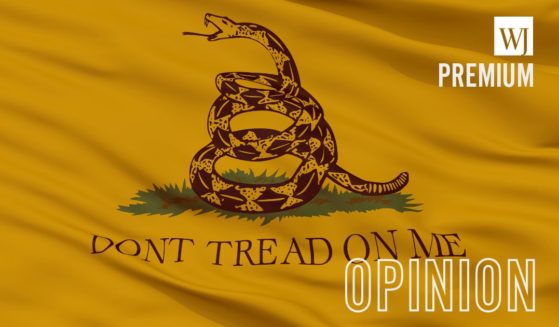Get the latest news delivered right to your email.
2024 Election
Top Stories
Advertisement
Black Americans Turning on Biden in His Own Home State: 'Donald Trump Is Who We Want'
Joe Biden's black voter base is dwindling, and it's leaving the door wide open for Donald Trump.
By Laura Wellington
April 19, 2024
Comment
MoreShare
The Next Caitlin Clark? New Star Already Getting Praise from Her as She Heads to Iowa
She is one of women's basketball's top scorers, and next year she will be playing for Iowa, after announcing her transfer there.
By Jack Davis
April 19, 2024
Comment
MoreShare
Authorities Release Selected Excerpts from Manifesto of Trans Student Planning Shooting - What They're Allowing Us to See Is Bad
Ye's manifesto revealed both extreme nihilism and a chilling lack of empathy that only spiritual rebirth, grounded in truth, could overcome.
By Michael Schwarz
April 19, 2024
Comment
MoreShare
Revealed: Biden Has Taken 200 Actions to Increase Gas Prices - We Highlight Top 3
From the start, Joe Biden proudly warned that he intended to launch a war on the U.S. oil industry, and he has fulfilled that promise.
By Warner Todd Huston
April 19, 2024
Comment
MoreShare
Chicago Woman in MAGA Hat Unleashes on Mayor Over Immigrant Spending Plan: 'Use Our Tax Money for Our People!'
The new proposal is in addition to $150 million the city has already allocated toward supporting illegal immigrants.
By Anthony Altomari
April 19, 2024
Comment
MoreShare
Middle School Girls Take Brave Stand at Track Meet When Adults Force Them to Compete Against Transgender Opponent
It’s tragic that the state of our crumbling society had even put these girls in a position to protest during their own sporting event.
By Johnathan Jones
April 19, 2024
Comment
MoreShare
Revealed: Growing Number of Young People Now Identify as 'Gender Season'
Gender identities have moved beyond the simple permutations of male and female, with "gender season" now entering the chat.
By Allison Anton
April 19, 2024
Comment
MoreShare
Black Americans Turning on Biden in His Own Home State: 'Donald Trump Is Who We Want'
Joe Biden's black voter base is dwindling, and it's leaving the door wide open for Donald Trump.
By Laura Wellington
April 19, 2024
Comment
MoreShare
Advertisement
The Left Is Wrong: Trans Suicides Surge Following 'Gender-Affirming' Surgeries, Study Shows
The left loves to claim that "gender-affirming care" saves lives. Here's the reality.
Comment
MoreShare
America Celebrates 249 Years of Rebellion Against Tyrants - Why We Must Remember Lexington & Concord
As Ronald Reagan said, there is nowhere left to run. We must restore our founding principles and reignite the American Dream.
Comment
MoreShare
The Left Is Wrong About Negative Human Impact on Climate
The rising level of CO2 in the atmosphere is a natural — not man-made — phenomenon, according to a top scientist.
Comment
MoreShare
Advertisement

































